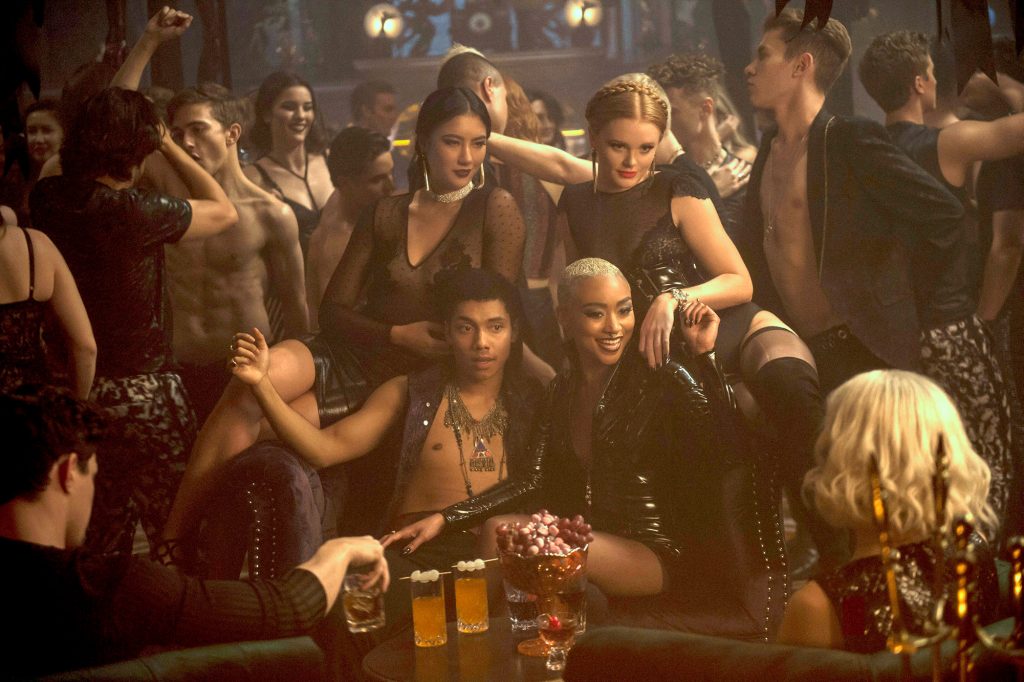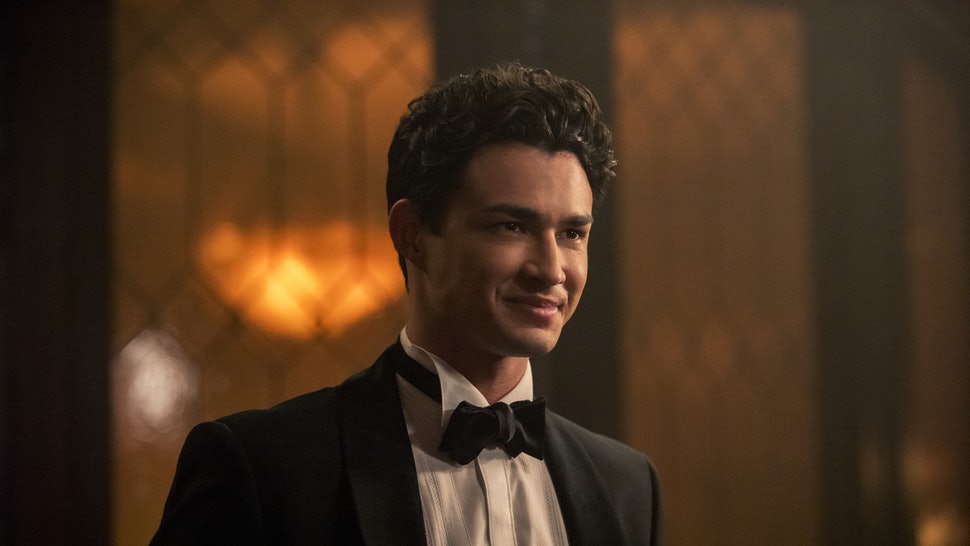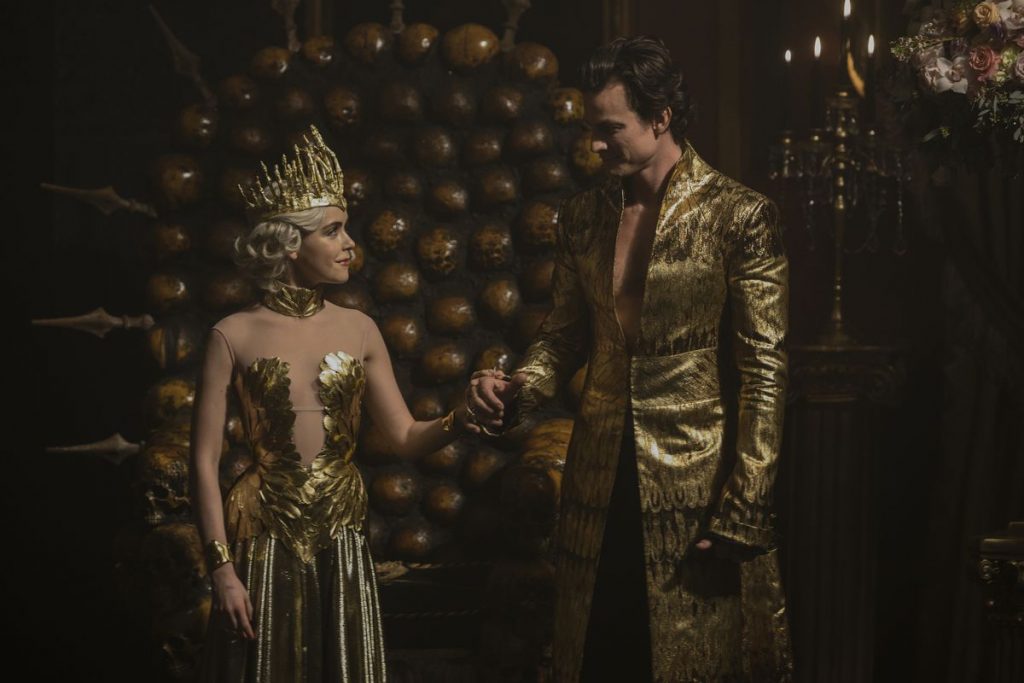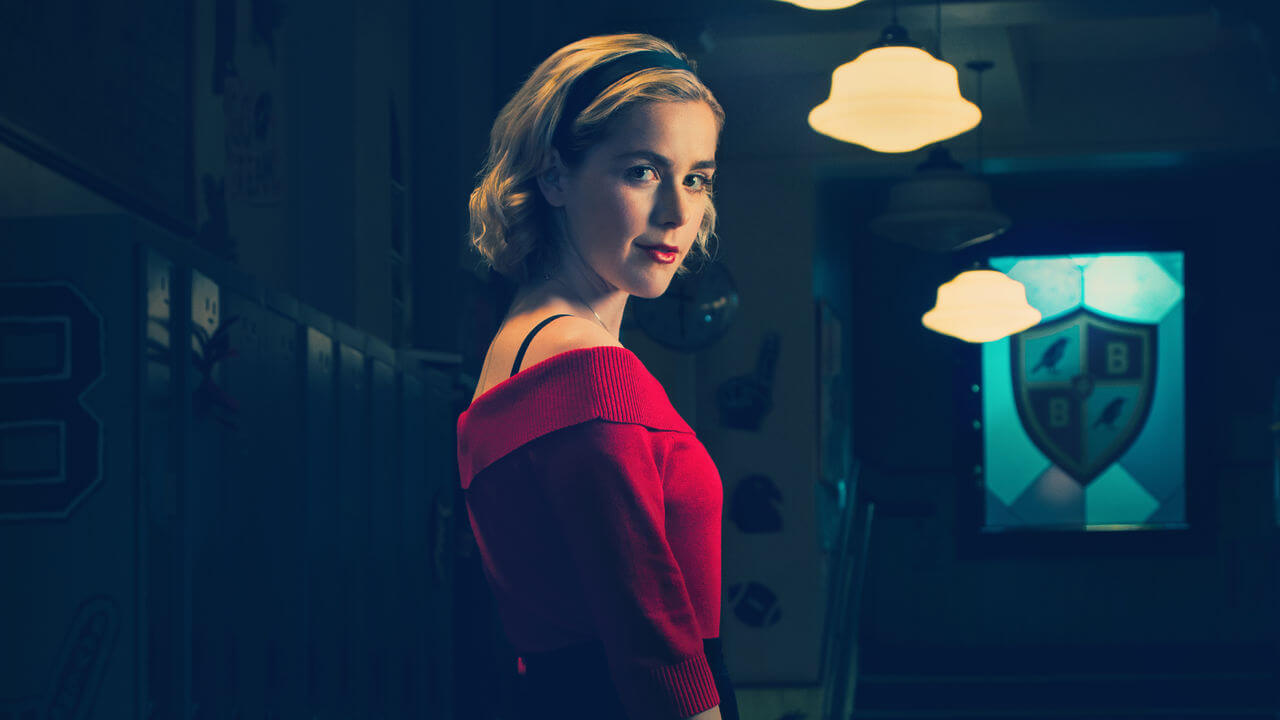It’s frustrating reviewing a series like The Chilling Adventures of Sabrina. On one hand, it’s clearly dedicated to tell a feminist story, where witches have to contend with patriarchy in various forms, from a sexist High Priest to the Dark Lord himself.
On the other hand, this is clearly a teenage show that falls victim to its trappings, from executing a love rectangle to having women constantly undermine each other for their own gains.
There are a lot of things that this show gets right. It’s enjoyable, and the main cast of characters are finding their group in Part 2. Michelle Gomez is as fantastic as ever, biting hard into the chewy role of the demon Lilith, who’s at once both frustrated at and hung over Satan for abandoning her to her ongoing masquerade as Ms. Wardwell. Mirando Otto also shows promise as Zelda Spellman, who is equal parts conniving and ambitious, working to gain favor by marrying Father Blackwood.
Yet Sabrina’s character remains as irritatingly SJW-ish as ever. She is constantly fighting for equal rights, but as she gives into her darkness, she also ends up ignoring her previous friends, including her trans friend Theo. Sabrina’s character has more meat to her this time around, but it’s still a nebulous role who stretches in dimensions to fit the whims of the episode.

The magic is aplenty in Part 2, and that’s not always a good thing. The Church of Night is fleshed out, but it’s defined chiefly by its opposition to Christianity. While there is some novelty to be found in Sabrina playing the role of the Anti-Christ while battling vengeful angels, it also feels trite and overused. This is another Chosen One narrative that, although subverted, bores more often than excites. There is a cursory attempt to examine how Sabrina can balance both sides of her nature, but it’s swiftly abandoned in favor of prophecies and miracles.
However, the show does use magic in interesting ways. In one episode, for instance, every major character gets a tarot reading that reveals their possible futures (all of them ending in horrible ways). Theo, for instance, is able to transition fully as a man through magic, but he soon discovers that there are grave consequences for the trade, as his arm mutates into tree bark. Similarly, Sabrina ends up being warned not to trust the Weird Sisters too much, because they might lead her new boyfriend, Nick Scratch, astray.

The show is perhaps at its strongest when it’s exploring witchcraft as a powerful tool to subvert patriarchal control and expectations. Sabrina, for instance, often states that she will do away with archaic traditions once she becomes High Priestess herself. Zelda, who ends up marrying Faustus in a bid for power, is soon turned into a docile, subservient stepford wife. Furthermore, we learn that the Satanists in this show also have a tradition disturbingly similar to Prima Nocta, where the Dark Lord Satan can claim any bride he pleases on her wedding day.
The ending leaves the show in an interesting place, but it feels like a fusion of Supernatural and Riverdale, which doesn’t always come off well.
It does introduce higher stakes for the cast, but it’s also resolved conveniently in the space of one episode.
This episodic nature is perhaps Sabrina’s worst element. In most episodes, Sabrina is trying to subvert the status quo, sometimes working in direct opposition to Father Blackwood’s wishes, whether that means running for Top Boy or trying to exonerate her cousin Ambrose, who’s accused of murdering the Anti-Pope. Conflicts are introduced and then dropped soon after, which reinforces the teen Supernatural feel of the show.

The feminist bent also doesn’t always work out. Zelda and Hilda often find themselves being embroiled in petty rivalries, and Lilith is relegated to a background role more often. While Lilith gets restless as her Ms. Wardwell role begins to become indefinite in nature, she also suffers from bouts of jealousy at Sabrina, unhappy that she’s being waylaid by Satan in such a boorish way. She pines for his touch, settling momentarily for a mortal paramour who’s long been in love with Ms. Wardwell; her past soon catches up to her, however, and she returns to her machinations soon after.
As it stands, The Chilling Adventures of Sabrina continues to be both frustratingly obtuse and devilishly fun. Here’s to hoping that Roberto Aguirre-Sacasa smooths out the problems in this extended first season by next year.
His writing often displays a spark of winking, clever humor. The show’s characters are all interesting and flawed to a fault (except, perhaps, Sabrina’s boyfriend Nick Scratch, who at times feels like a cleaner version of Edward from Twilight). It will be interesting to see what Aguirre-Sacasa brings in the next season and how Sabrina’s newly-discovered heritage will inform her lifestyle choices.






















